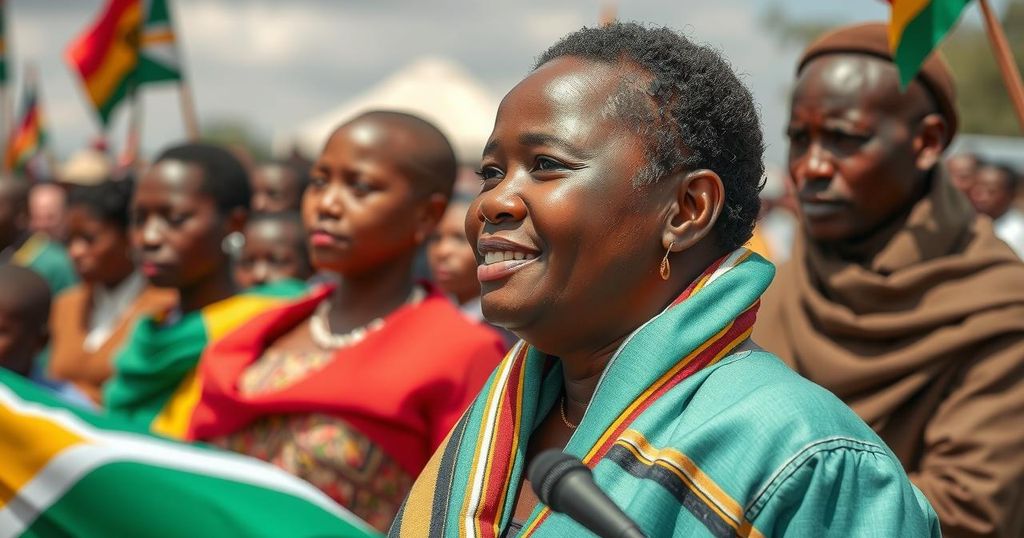Reimagining Democracy in South Sudan: The Path Forward

This article discusses the recent postponement of elections in South Sudan and the persistent challenges in achieving democracy. It argues for a fundamental restructuring of governance that emphasizes citizen involvement, a departure from ethnic-based politics, and the necessity for an inclusive national dialogue to establish a stable democratic framework.
On September 18, 2024, the transitional government of South Sudan announced the postponement of elections until December 2026, citing failure to meet critical legal, financial, and technical prerequisites for credible elections. This delay highlights a persistent question that looms over South Sudan: will the country ever effectively transition to democracy? Achieving this necessitates a fundamental reassessment of the nation’s governance structure and priorities.
The turmoil in South Sudan can be traced back to its independence in 2011. The onset of independence ironically did not foster the establishment of robust governmental institutions necessary for a functioning state. Rather, it allowed a government that favored specific ethnic groups, fostering political centralization that marginalized the majority. The transitional constitution has granted immense powers to the presidency, stifling public engagement and creating a political climate that prioritizes elite urban interests over the needs of ordinary citizens. This model has perpetuated a superficial semblance of unity, while underlying ethnic and regional disputes remain unresolved.
The responsibility for the crisis is shared between the South Sudanese populace and the international community. The international approach often reduces the country to a humanitarian concern, focusing on urgent needs like elections and violence prevention, while neglecting long-term opportunities for development and investment.
Since the civil conflict erupted in 2013, international-backed peace agreements in 2015 and 2018 have failed to rectify South Sudan’s ingrained structural weaknesses. Instead, these agreements have entrenched the interests of unelected political leaders while denying common citizens access to responsive democratic frameworks.
To foster true democracy, South Sudan requires more than just elections. It necessitates a comprehensive rethinking of governance and the nature of independence. The prevailing authoritarian regime, with its historical roots in colonialism and liberation struggles, cannot fulfill the needs of a diverse citizenry. A productive path forward would emerge from a grassroots dialogue leading to a social contract aimed at fostering stability and inclusive growth.
South Sudanese must engage in open discussions to confront the nation’s failings and shape their political landscape. A critical aspect lies in redefining national identity, moving away from ethnic affiliations to a vision centered on citizenship. Key questions include how to develop a coherent notion of South Sudan as a democratic state and how to address justice within this framework.
In the absence of a credible political landscape, certain marginalized groups are resorting to violence to assert their claims for economic and political representation. A more constructive alternative would be a national conference convening all political, civic, religious, and regional representatives to forge consensus on the necessary democratic structures. The inclusivity of such a conference is vital; it must ensure equal representation of women and younger demographics, ultimately aiming to draft a new, more equitable constitution.
For South Sudan to cultivate a true democratic system, the solution must arise from within. It is essential to move beyond flawed frameworks that hinge solely on elections and peace agreements. A nationally-led conference represents a pivotal opportunity for South Sudan to empower its citizens, circumvent elite governance pitfalls, and strive toward a renewed sense of independence that fosters genuine stability and economic growth across the Horn of Africa.
South Sudan has faced significant challenges since its independence in 2011, marked by internal ethnic conflicts and failure to establish stable governance structures. The concentration of power in the hands of a few has marginalized ordinary citizens and led to widespread discontent. Efforts at peace, often backed by international actors, have not addressed the root causes of the crisis, leading to ongoing turmoil and the need for a more inclusive political process.
In conclusion, South Sudan’s pursuit of democracy hinges on redefining its national identity and engaging in comprehensive dialogue among all societal sectors. The solution lies not in temporary fixes like elections, but in an inclusive national conversation designed to construct a stable and equitable political framework. Only through citizen empowerment and a commitment to justice can South Sudan hope to realize a true democratic society and sustain long-term growth.
Original Source: www.radiotamazuj.org








